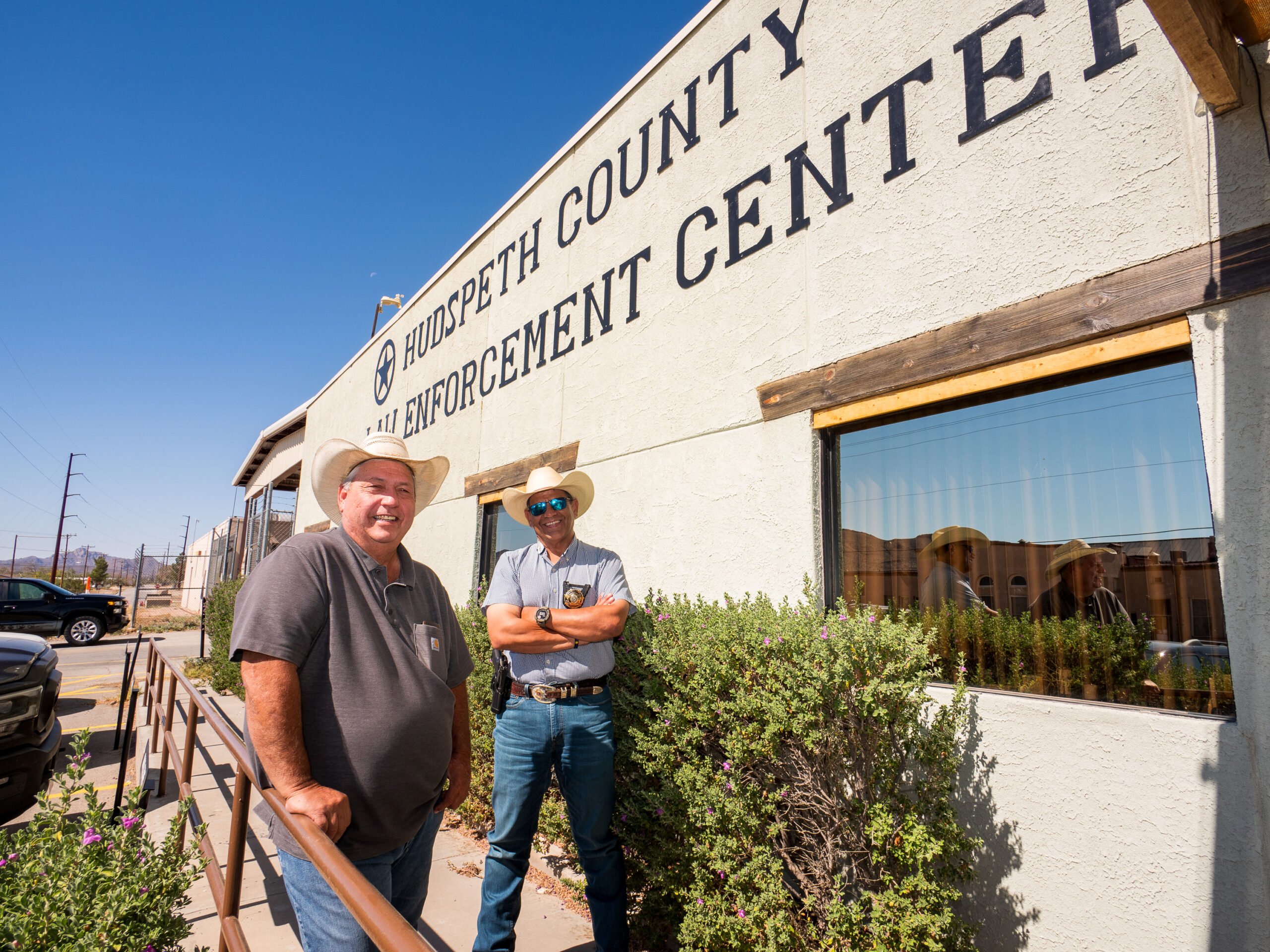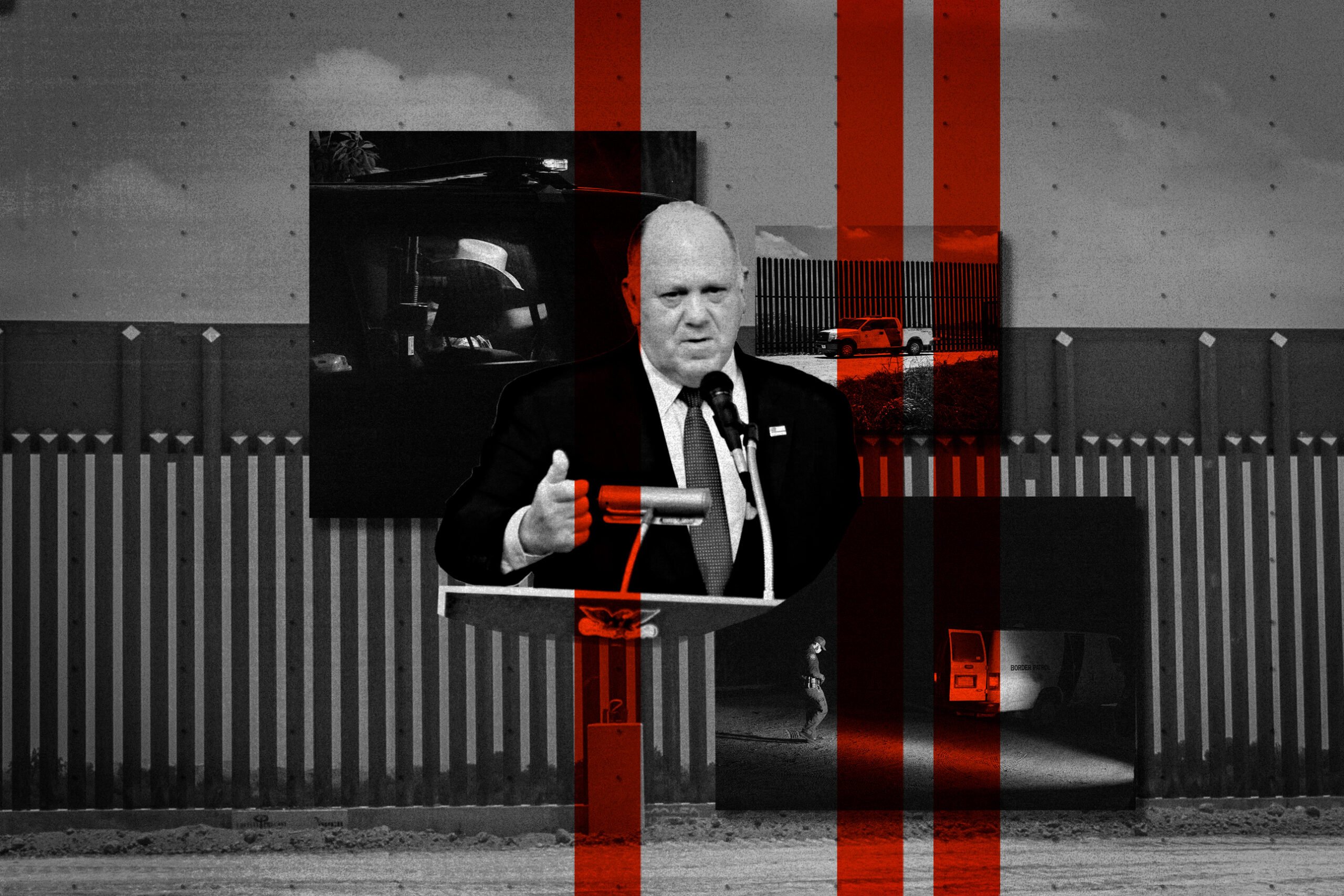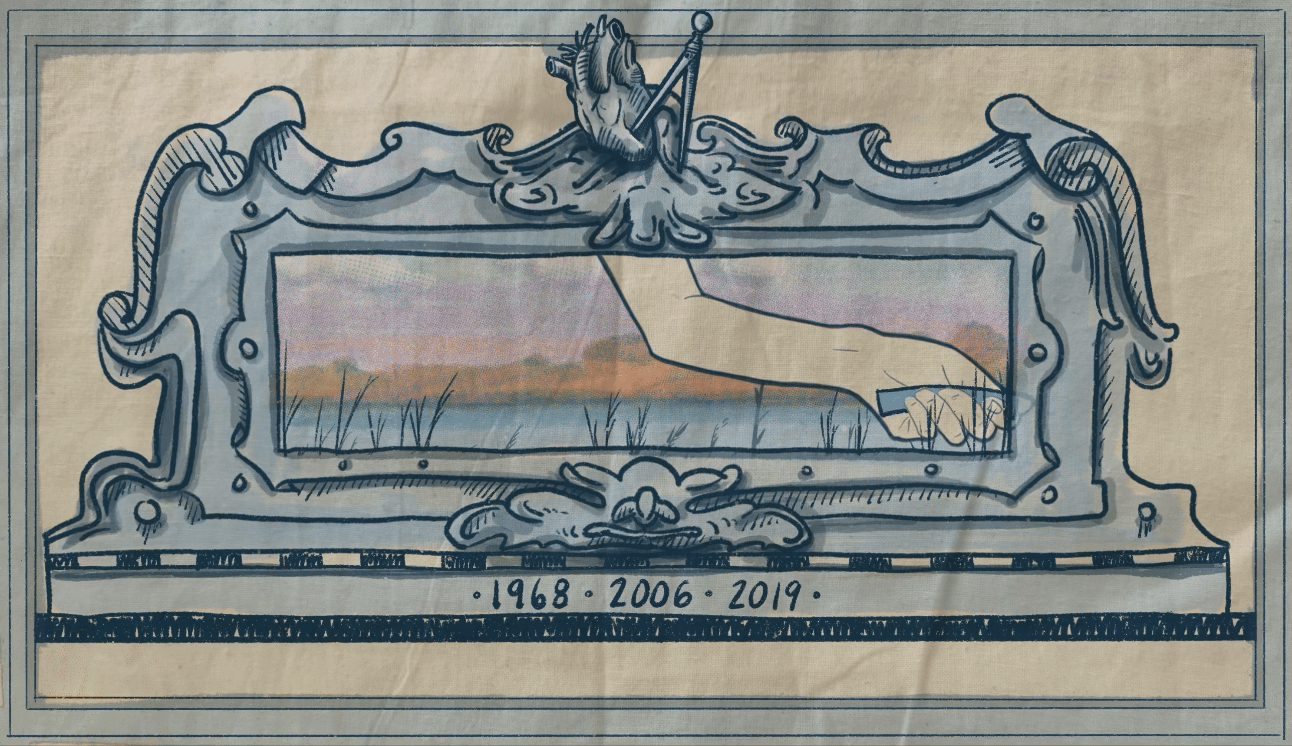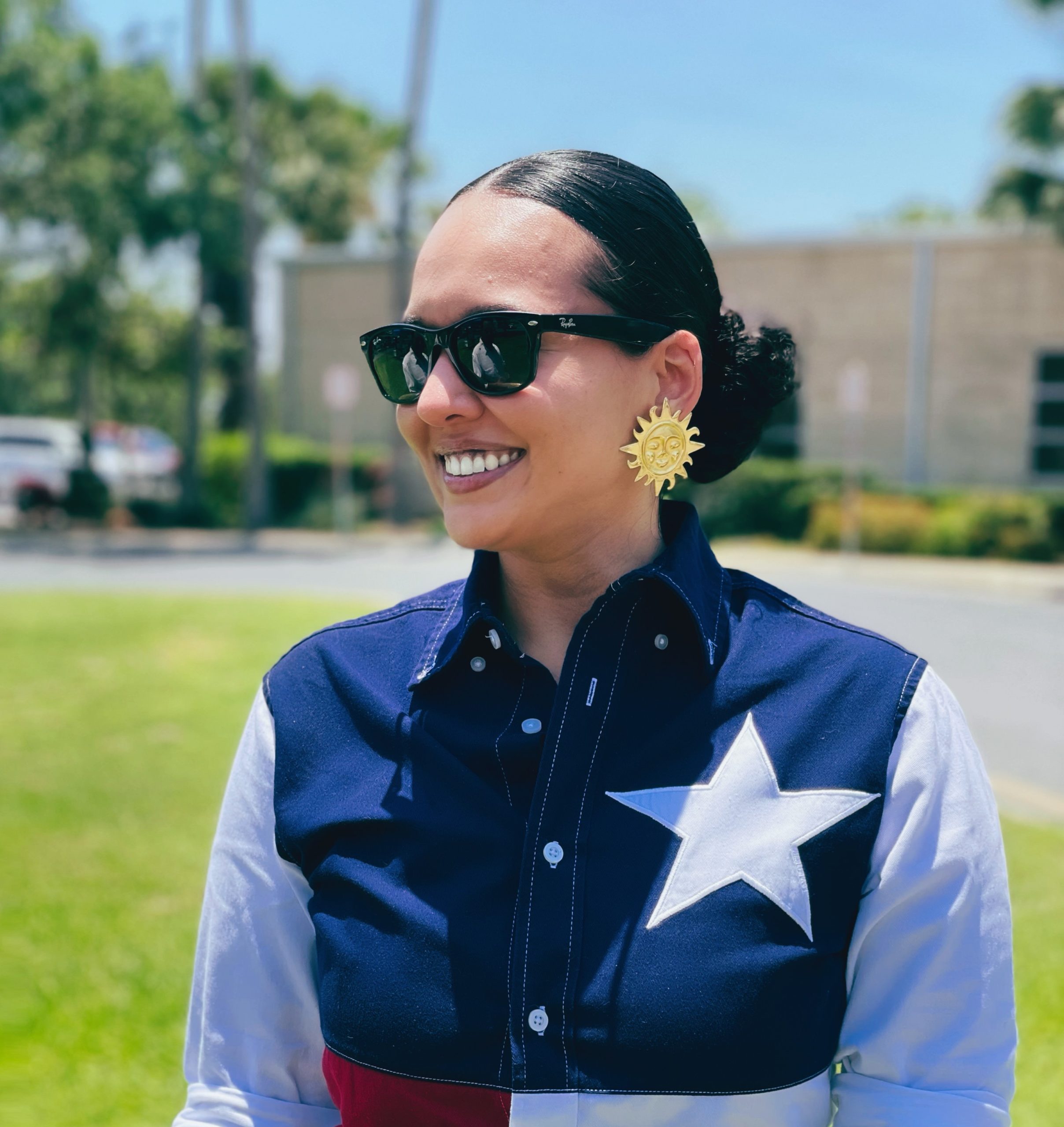
Michelle Vallejo Keeps the Progressive Flame Alive in the RGV
The 30-year-old congressional candidate could be the first Latina Democrat to represent the Valley in the U.S. House, if she can defeat a well-funded Republican.
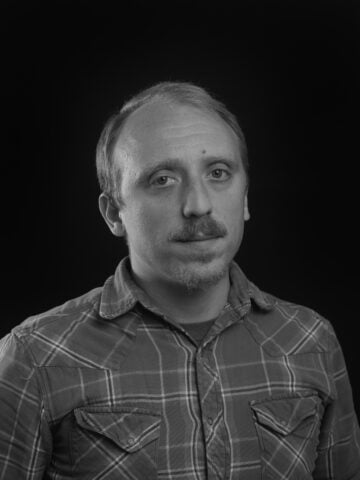
A version of this story ran in the July / August 2022 issue.
Michelle Vallejo, a 30-year-old congressional candidate and co-owner of a McAllen-area pulga, would like to be the rain on Republicans’ South Texas parade. Running to represent Congressional District 15—a top pickup target for a GOP hungry to gain ground along the Texas border—Vallejo emerged from a crowded March Democratic primary while running as the field’s most progressive candidate. In late May, she prevailed by a mere 30 votes in a runoff against a moderate opponent.
Vallejo was recruited to run by a local progressive organization, LUPE Votes, and she signed onto a platform that includes Medicare for All and a $15 minimum wage. On the Republican side, voters nominated Monica De La Cruz, a well-funded, second-time candidate and border fearmonger, for CD-15. Vallejo could be the first Latina Democrat to represent the Rio Grande Valley in Congress. The Observer spoke with Vallejo about propaganda, the security state, and making history.
After redistricting, CD-15 would have gone for former President Donald Trump in 2020 by about three points. What makes you believe you can win this seat in November?
MV: We have already proven [ourselves in] two upset races by showing up, doing the work, staying connected to our grassroots way of connecting with the community. And this truly has proven itself to me as the way to keep going, and I know that this is a stark difference from how people were campaigning and how Trump was campaigning in this area. He was coming down here and using the border wall and our region as a photo op, which, quite frankly, my opponent and other people in the Republican Party have jumped on the bandwagon to do. But the community sees that those kinds of tactics are just for political gain, not for improving anything in our community.
I’m here to work with everyone across the board so that we can find some common-sense solutions to, quite frankly, the chaos that we experience here on the border because of bad policy, bad legislation, and harmful campaigning that tears us apart.
You said “chaos”?
When we have elected officials who come to the border to put on press conferences and then they put it on Fox News with images of people coming across the border or whatever kind of images they want to portray, yes, that is the chaos: the fact that there are different narratives being spoken about when it comes to our home. And an opponent and a candidate like Monica De La Cruz exacerbates that.
Does the Texas border need any more Border Patrol agents, surveillance technology, or a “virtual wall”?
Before we make any large investments in more hyper-surveillance technology, any kind of money invested in quote-unquote solutions that are pretty much just putting money into the hands of certain companies or certain consultants or certain groups of people that don’t even live here—I think those are not good solutions—we need to come to the table and hear the voices of the people who have been facing this challenge.
During the primary campaign, I noticed you were the one who most strongly discussed border militarization and the negative impact that this whole security apparatus has on people just trying to live freely at the border.
I grew up south of a Border Patrol checkpoint. I know what are some of those unintended consequences on a community when you militarize their home, like having a Border Patrol checkpoint in the middle of our district, where some people are practically landlocked because they don’t have a clear-cut way to become a citizen. It brings a wave of shame onto our community because of where we live and it has negative impacts on overall health; it has impacts on overall community safety; it has impacts overall on living a dignified life, which really is the fight here.
I live eight minutes from Anzalduas Park and the Anzalduas bridge [over the Rio Grande] and I have felt the difference over time, since 2016, since 2017. And I don’t want to see my home become a place that appears to be even more scary, because we are a beautiful place; we are home to the National Butterfly Center that sees the most migration of butterflies in our entire country. That’s something to be proud of. That’s something to champion and to respect. Also honoring our river and the beautiful, magical environment that I truly feel we are blessed with. That is what we should be protecting. That is what we should be honoring. And I think that has unintended consequences that are positive, where people have pride for their home and they feel honor for where they live and how we live.
If you get to Congress, what policies will you support to try to prevent another tragedy like Uvalde?
There’s plenty of data that shows us that people are concerned about gun safety. People are not happy about the conversation of bringing guns into schools as a way to solve this issue. And I know that some of the common-sense protections or policies we can put into place, such as increasing the minimum age from 18 to 21 on being able to buy a gun, having universal background checks, closing the loopholes on how people access guns at gun shows—these are very sensible steps that are not in place here in Texas. And now that we have had two tragedies that have affected Latino communities in Texas, in El Paso, and in Uvalde, for me it’s really important to be working with other members of Congress who are championing solutions.
Would you support a federal ban and/or a mandatory buyback of assault weapons?
Right now, those are two questions I have turned to my team to get me a little bit more information on because I do want to understand what that type of policy would do.
If you were to win this race, it might end up being you who gets the distinction of being the first Latina Democrat to ever represent the Valley in Congress. What do you think of that?
I think about the Latinas in my life who have been examples of how to be great leaders. I think about my mom. I think about my grandmothers. I think about my teachers. So many Latinas who have set amazing examples to me on how to take on a challenge like this. And to me, it’s an amazing step but one that has taken us too long. And I hope women are seeing what we’re doing in the campaign and feeling inspired and motivated and finding the courage in themselves to believe in themselves, to do something similar, to run for office, to step up and take on roles and leadership positions because our communities deserve and need Latinas in power who are advocating for our families and who are advocating for women and who are advocating for those in our community who need the most help.
Editor’s Note: This interview was conducted June 5.

